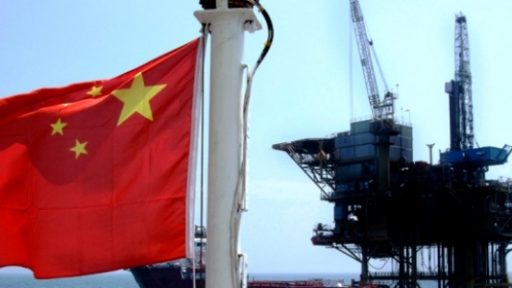- Home
- >
- Daily Accents
- >
- Are China’s OIL futures going to be a gamechanger?

Are China's OIL futures going to be a gamechanger?

After a wait of about a quarter of a century, the world’s biggest oil buyer is finally getting its own crude-futures contract.In a challenge to the world’s dollar-denominated oil benchmarks Brent and West Texas Intermediate, China will list local-currency crude futures in Shanghai on March 26, according to the nation’s securities regulator.
If the futures are embraced by overseas investors and become a benchmark for global oil transactions, China’s hoping the yuan could challenge the dominance of the greenback in international trade. Still, skeptics say that won’t happen as long as the currency is controlled by the central government, and while international traders may agree to settle contracts converted into yuan, they’ll continue to price the oil in dollars.
“This is a first small step toward China becoming a more active price setter in oil, but for Shanghai to come anything close to a global benchmark, it will take years,” Michal Meidan, an analyst at industry consultant Energy Aspects Ltd. said. “While this gives another impetus to liberalise the yuan, there are bigger obstacles related to volatility and capital outflows that will dictate the pace.”
The futures will trade on the Shanghai International Energy Exchange, a unit of the Shanghai Futures Exchange, Securities Regulatory Commission said. While some details of the contract such as the size (1,000 barrels per lot) and grades have been released, other information like the delivery depots for the crude are yet to be announced.
China’s trying where others, including Russia, have stumbled. While international investors may prove circumspect, there’s little doubt the Chinese will embrace their own oil futures enthusiastically. Trading in contracts across the nation’s three commodity exchanges has exploded in recent years, as speculators buy and sell everything from iron ore to soybeans with such intensity that regulators have repeatedly stepped in to quell fears of a bubble.
China surpassed the U.S. as the world’s biggest oil importer last year, buying about 8.43 million barrels a day to feed demand from government-run as well as independent refiners. The nation has also been hoarding millions of barrels for its Strategic Petroleum Reserve. Rather than buying how much ever crude they want, private companies have to adhere to government-issued quotas for their purchases. And this year such allocations expanded.
“The ability for foreign producers and consumers to price hedging contracts on a domestic China commodities exchange using yuan is a game changer,”
Why didn’t China begin trading futures until now?
Lower crude prices have played a part. Chinese oil futures were proposed in 2012 following spikes above $100 a barrel, but prices in 2017 have averaged little more than $50. There’s also concern over volatility. China introduced domestic crude futures in 1993, only to stop a year later because of volatility. In recent years, it repeatedly delayed its new contract amid turmoil in equities and financial markets. Such destabilizing moves have often prompted China’ government to intervene in markets in one way or another.
Nickel was the last major commodity to be listed there in 2015; within six weeks, trading in Shanghai surpassed benchmark futures on the London Metal Exchange, or LME. In China, speculators play a far greater role, boosting trading volumes but making markets susceptible to volatility. In early 2016, the then-head of the LME said it was possible some Chinese traders did not even know what they were trading as investors piled into everything from steel reinforcement bars to iron ore. Steep price rises relented when China intervened with tighter trading rules, higher fees and shorter trading hours.
Source: Bloomberg
Trader Bozhidar Arabadzheiv
 Varchev Traders
Varchev Traders Read more:
If you think, we can improve that section,
please comment. Your oppinion is imortant for us.














